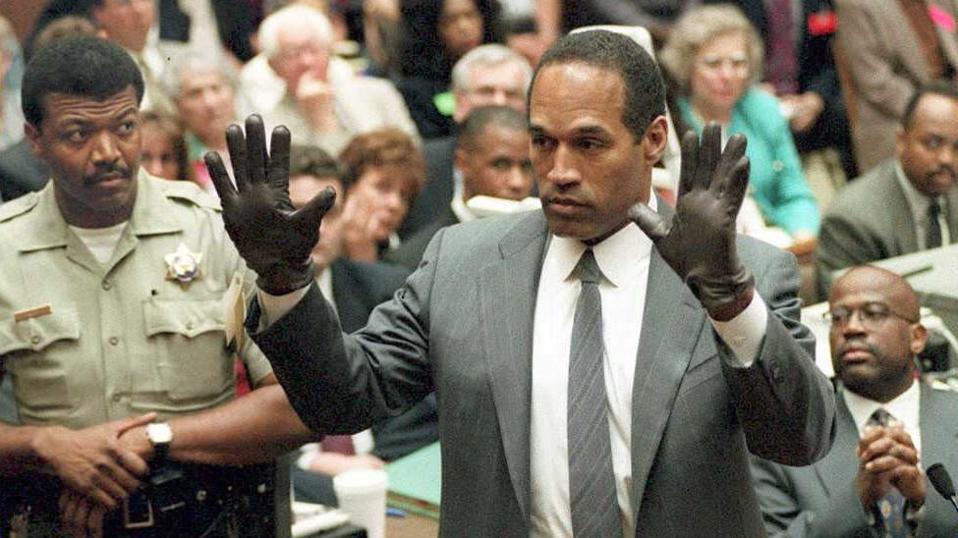As news of O.J. Simpson’s death reverberates, I believe it serves as a catalyst for introspection on the profound lessons that leaders can extract from his turbulent brand odyssey.
Once hailed as America’s most beloved and renowned collegiate athlete, O.J. Simpson soared to fame. His groundbreaking presence as the first black athlete to star in Chevrolet commercials in 1969 blazed a trail for future luminaries such as Michael Jordan and Tiger Woods to represent brands on television. But, the trajectory of Simpson’s pioneering brand darkened in 1994 when he was arrested and charged with the murders of former wife Nicole Brown and Ron Goldman. Simpson was aquitted in “the trial of the century,” but later but found liable for the deaths in a civil suit from the victims’ families. Simpson’s brand was irreversibly marred in the court of public opinion.
The stark divergence between legal aquittal and public condemnation, I believe, underscores the first critical lesson for brand leaders: savvy audiences are in control and they question everything.
In the fast-paced realm of social media today, this reality holds more weight than ever. Audiences craft their own narratives, disregarding marketing claims or court rulings. Just take a look at the multitude of Michael Jackson memes on TikTok denying any plastic surgery allegations.
According to Ford Motor Company’s 2020 Trends Report, 77 %of Americans acknowledge a growing sense of mistrust with brands. And, 67% of adults believe that once a brand loses their trust, it is nearly impossible to regain it. And if that wasn’t harsh enough, 40% of audiences actively discourage friends and family from engaging with companies they have a negative opinion about. Considering that 93% of audiences prefer brands recommended by their close contacts, I’d say it’s clear that building and maintaining trust should be a top priority for brands.
Secondly, the O.J. Simpson case serves as a reminder of the intricate tapestry of race relations and the importance of inclusivity. The trial laid bare deep-rooted societal tensions around race, privilege, and justice. The polarizing nature of the case, with Simpson, a prominent Black figure accused of a heinous crime against two white Americans, resonated with the nation’s racial fault lines. And I think we all know that those social tensions are still alive and kicking today in 2024.
And that would be part of the reason that I emphasize that brands need to grasp the importance of diversity, equity and inclusion within their organizations and public interactions.
Only 9% of executive roles in the British industry are held by people of color, according to the first UK Fashion DEI (diversity, equity, and inclusion) Report. The report also points out the lack of diversity across the workforce, which experts believe is holding back business success and profit. It’s disappointing that this issue persists in 2024, showing that not enough leaders in the industry are taking it seriously.
I said it before and I’ll say it again, by actively engaging with issues of race and social justice, brands can forge incredibly strong and powerful connections with their audience and demonstrate a commitment to fostering a more just and equitable society.
A study from Morning Consult reveals that workforce diversity, women’s rights, and racism in America are the inclusion-related issues most consumers want to hear about from brands. Furthermore, despite negative headlines over the past year, just 13% of U.S. adults believe brands should not engage in inclusive marketing at all. Ads promoting inclusivity can be a motivator for some consumers, especially Generation Z adults.
A Deloitte study found that only 48% of Gen Zers thought businesses were having a positive impact on society. In all fairness, that’s not a bad statistic. But, only 53% of Gen Zers said brands in general came across as authentic, much lower than the 61% of millennials who said the same, according to Salesforce.
Thirdly, aligning with cultural movements and embracing emerging trends, I believe, can be a powerful strategy for brands to leverage cultural currency, and start to spontaneously emerge within the culture. The results from a study from Morning Consult would agree. Half of U.S. adults think brands have a duty to speak out on political, societal, or cultural issues.
By engaging in cultural dialogues and aligning their messaging with pertinent social issues, brands can position themselves as socially aware and in harmony with the values of their target audience. I loved Dove’s campaign for real beauty for this exact reason. The brand challenged societal norms by showcasing a diverse range of women as beautiful, beyond the traditional media standards. This resonated profoundly with audiences. But be careful this strategy can also backfire. I remember Starbucks’ ill-fated attempt the Champion race relations in the U.S. with its “Race Together” campaign – authenticity is paramount in such endeavors.
And last, but not least, the complex conversation around his racial identity which I believe underscores the importance of authenticity and alignment with core values for brand leaders. Authenticity is the bedrock of building trust and credibility with audiences, and brand leaders must stay true to themselves and their values to resonate with their audience effectively.
A study by Forrester reveals that Chief Marketing Officers who maximize perceptions of authenticity drive commerce. Seventy-one percent of U.S. audiences say they can relate to authentic brands and want to support them, and 70% report that authentic brands give them a “stronger feeling of confidence.” That’s pretty powerful.
All said and done, O.J. Simpson’s life story is a poignant reminder of the intricate nuances of human nature and the art of brand development. In both life and death, O.J. will endure as an iconic figure, symbolizing the peaks of triumph and acclaim, alongside the depths of scandal and shame.
Named Esquire’s Influencer Of The Year, Jeetendr Sehdev is a media personality, international speaker and the author of the New York Times bestselling sensation, The Kim Kardashian Principle: Why Shameless Sells (and How to Do It Right.)

